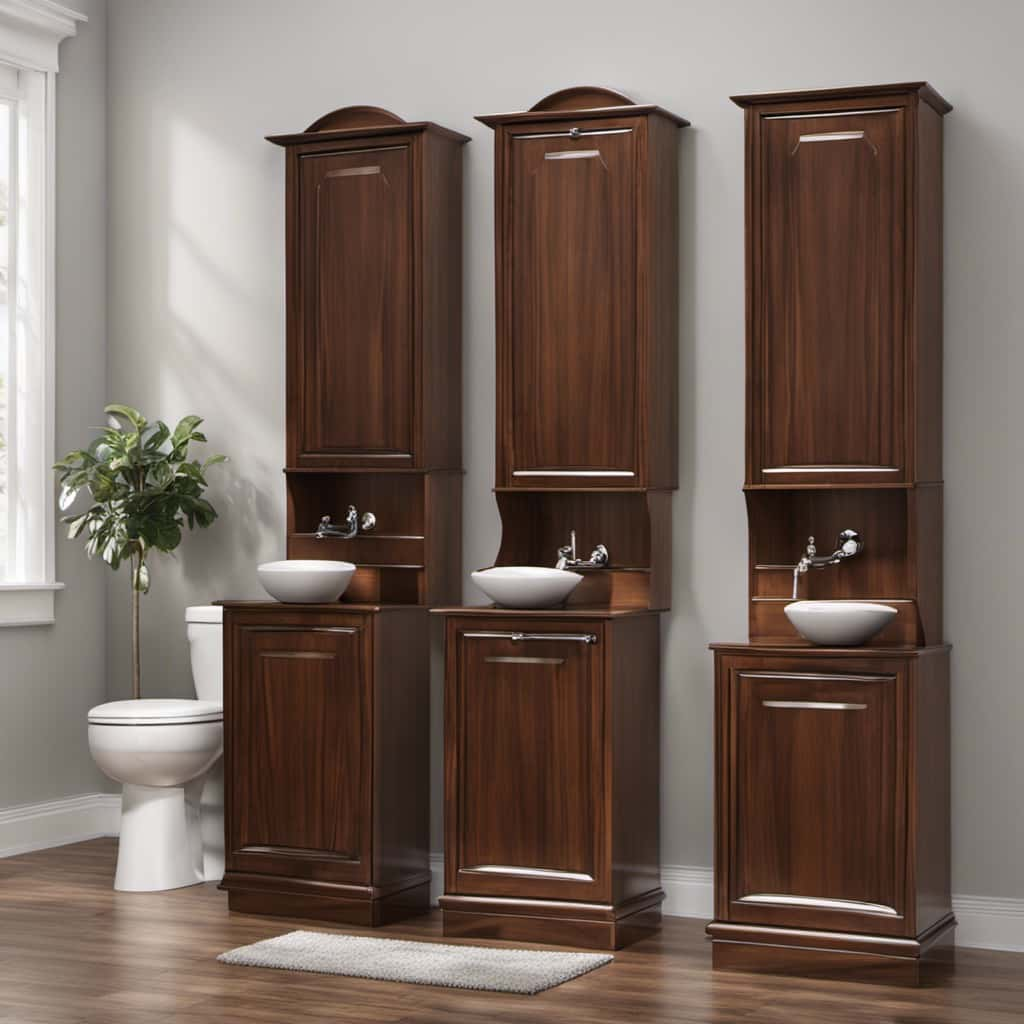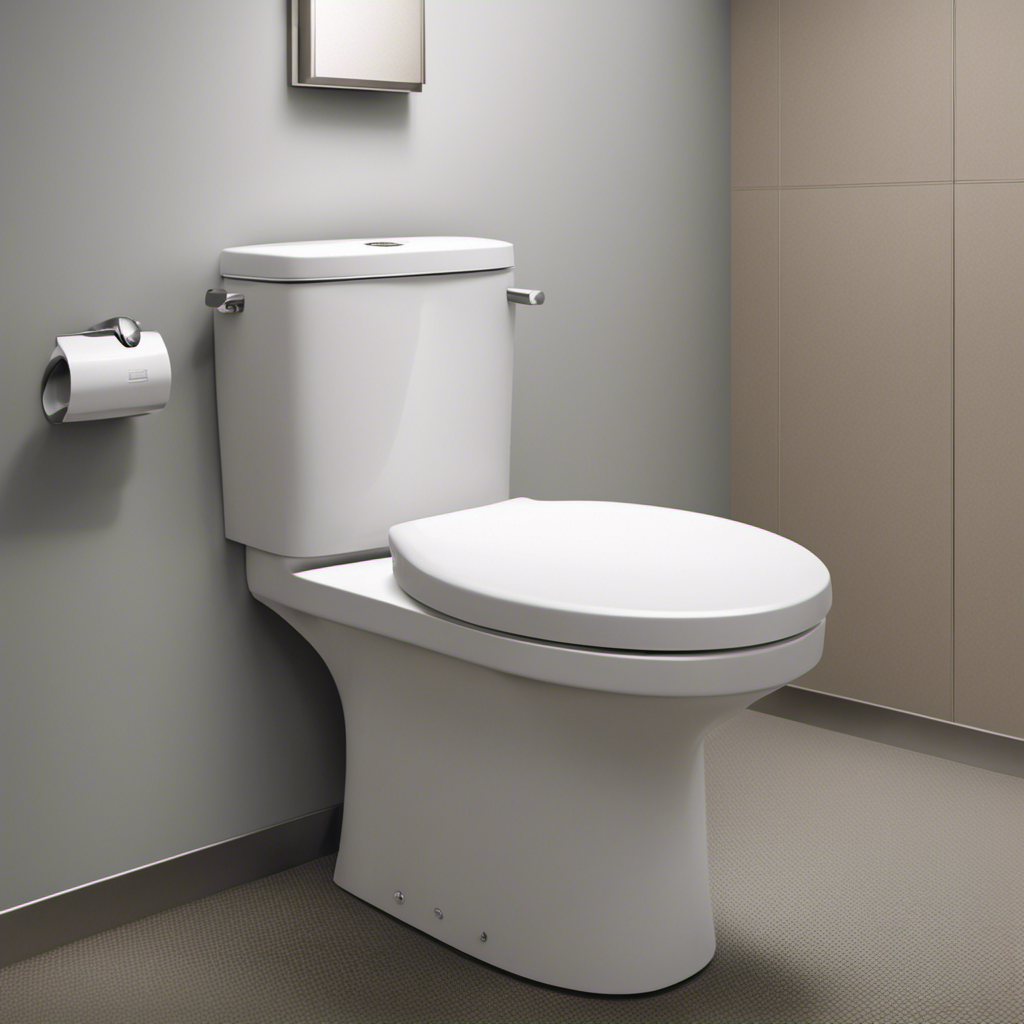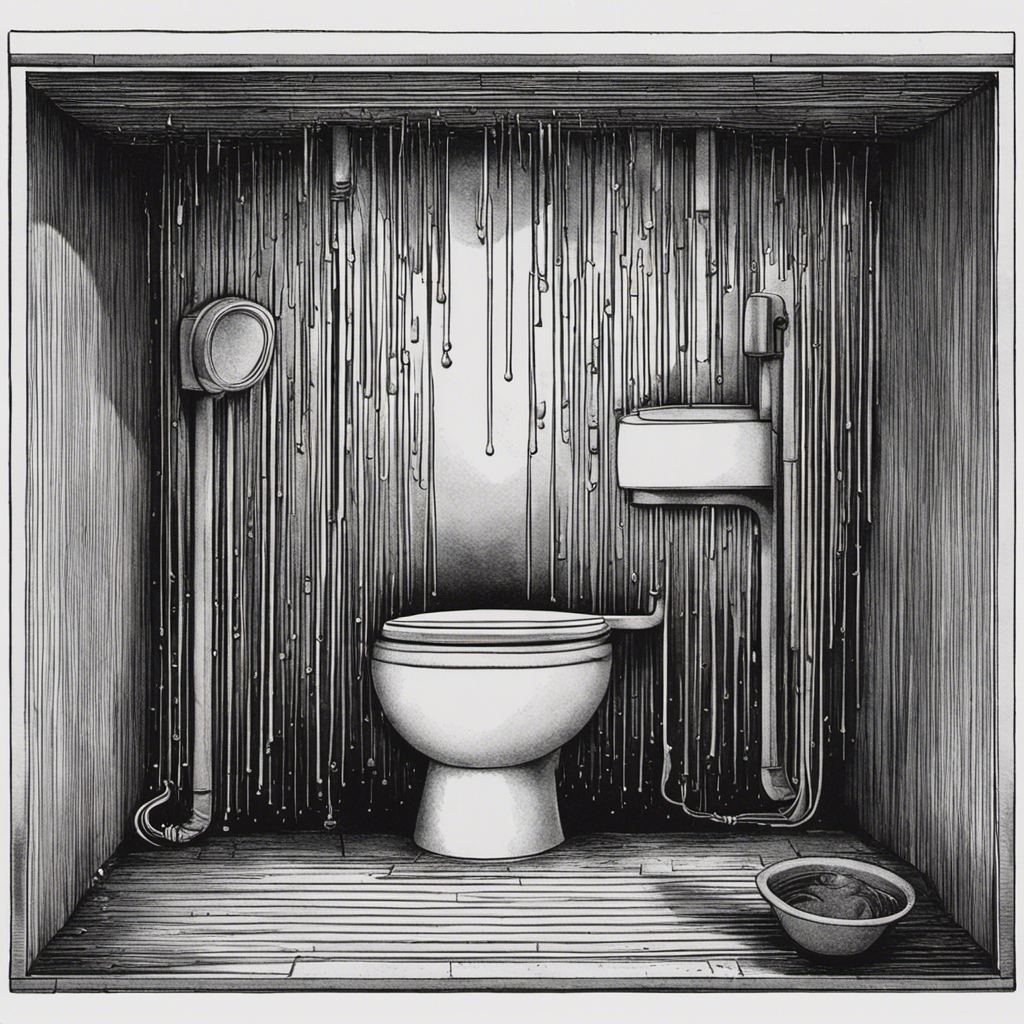Hello, everyone! Have you ever pondered whether it’s permissible to flush the toilet on Shabbat? If so, rest assured that you’re in good company.
In this article, we’ll dive into the halakhic perspectives, prohibitions, and modern interpretations surrounding this intriguing topic. We’ll also explore the historical background and traditions, along with practical considerations and solutions.
So, gear up for a fascinating journey as we unravel whether or not you can hit that flush button on the holy day.
Let’s get started!

Key Takeaways
- The permissibility of flushing the toilet on Shabbat is a debated issue among Jewish scholars.
- Traditional halakhic sources do not explicitly address the flushing of toilets on Shabbat.
- Flushing the toilet may involve prohibitions such as ‘muktzeh’, ‘melacha’, ‘Boneh’, and ‘Gramma’.
- Modern interpretations and exceptions exist, with some allowing flushing with modified or foot-operated mechanisms.
Halakhic Perspectives
From a halakhic perspective, we can explore the permissibility of flushing the toilet on Shabbat. This topic raises important ethical implications and is influenced by cultural factors.
According to Jewish law, Shabbat is a day of rest and abstaining from certain activities. However, the issue of flushing the toilet on Shabbat isn’t explicitly addressed in traditional halakhic sources. As a result, scholars and rabbis have debated the permissibility of this action based on different interpretations and considerations.
Some argue that flushing the toilet involves the prohibition of ‘muktzeh’ (forbidden objects) or ‘melacha’ (forbidden work), while others believe that it’s permissible due to the concept of ‘tzorech gadol’ (significant need).
Cultural influences also play a role in shaping the perspectives of individuals and communities on this matter. The decision to flush or not to flush ultimately depends on one’s understanding of halakhic principles, personal convictions, and communal norms.

Prohibitions and Restrictions
There are several prohibitions and restrictions to consider when discussing flushing the toilet on Shabbat. In order to fully understand the complexities of this issue, it is important to delve into the religious beliefs and cultural practices surrounding the observance of Shabbat.
Jewish religious law, known as Halakha, prohibits certain actions on Shabbat in order to honor the sanctity of the day. These prohibitions are based on interpretations of the Torah and have been passed down through generations. When it comes to flushing the toilet on Shabbat, there are differing opinions among Jewish scholars.
To provide a comprehensive overview, let us examine the prohibitions and restrictions associated with this act:
| Prohibition/Restriction | Explanation | Ruling by Scholars |
|---|---|---|
| Directly activating a switch | Considered a violation of the prohibition of ‘Boneh’ (building) | Prohibited by some scholars, allowed by others |
| Indirectly activating a switch | May be considered a violation of ‘Gramma’ (indirect causation) | Prohibited by some scholars, allowed by others |
| Using a flush handle | May be considered a violation of ‘Molid’ (creating something new) | Prohibited by some scholars, allowed by others |
| Flushing a toilet with an automatic sensor | May be considered a violation of ‘Mechatech’ (extinguishing a flame) | Prohibited by some scholars, allowed by others |
| Flushing a toilet with a manual valve | Generally allowed as it does not involve prohibited actions | Allowed by most scholars |
It is important to note that these rulings can vary depending on the specific circumstances and the interpretation of Halakha by different Jewish communities. Therefore, individuals should consult with their local rabbi or religious authority for guidance on this matter.

Modern Interpretations and Exceptions
In our modern times, we’ve seen various interpretations and exceptions arise regarding the flushing of toilets on Shabbat. The issue of whether or not it’s permissible to flush a toilet on Shabbat has sparked contemporary debates among scholars and religious communities. Rabbinic rulings on this matter have varied, leading to differing opinions and practices.
- Some argue that flushing a toilet on Shabbat is prohibited due to the potential violation of the melakha (forbidden work) of ‘building,’ as the flushing mechanism may be considered a form of construction.
- Others contend that flushing is permissible as long as certain conditions are met, such as using a modified toilet or a foot-operated flush mechanism that avoids direct contact on Shabbat.
- There are also those who claim that flushing is allowed without any restrictions, as it falls under the category of ‘tolerable and necessary’ acts.
- Additionally, some individuals and communities have adopted technological solutions, such as automatic flushing systems, to ensure compliance with Shabbat laws.
These differing approaches highlight the complexity and ongoing discussion surrounding the issue, as individuals and communities strive to balance religious observance with modern conveniences.
Historical Background and Traditions
Continuing our exploration of the topic, let’s delve into the historical background and traditions surrounding the flushing of toilets on Shabbat.
Shabbat, the Jewish day of rest, holds great importance in Jewish culture and is observed from sundown on Friday until nightfall on Saturday. During this time, various practices are followed to honor the sanctity of Shabbat.

The question of whether or not one can flush the toilet on Shabbat arises from the prohibition of performing certain activities that are considered work. Traditionally, electricity and water usage were avoided on Shabbat, as they were seen as forms of labor.
However, the interpretation of Shabbat practices has evolved over time, with some modern Jewish communities allowing the use of toilets with certain adjustments.
Now that we’ve examined the historical background and traditions, let’s move on to the practical considerations and solutions surrounding this issue.
Practical Considerations and Solutions
Now let’s explore the practical considerations and solutions regarding the flushing of toilets on Shabbat, building upon the historical background and traditions we’ve discussed. When it comes to toilet flushing methods on Shabbat, there are several factors to take into account to ensure adherence to religious laws while maintaining proper hygiene practices.

Here are four possible solutions to consider:
- Pre-flushing: Some individuals choose to flush the toilet right before Shabbat begins to minimize the need for flushing during the day.
- Automatic flushing: Installing automatic flushing systems that operate without manual intervention can be a solution for those who prefer a hands-free approach.
- Covering the sensor: For toilets with automatic sensors, covering the sensor with an opaque material can disable the automatic flushing feature temporarily.
- Non-electric alternatives: Another option is to use non-electric toilets or composting toilets, which eliminate the need for electric flushing systems altogether.
Considering these practical solutions, individuals can find a balance between religious observance and maintaining proper hygiene practices during Shabbat.
Moving forward, let’s delve into the conclusion and final thoughts on this topic.
Conclusion and Final Thoughts
To wrap up our exploration of the practical considerations and solutions for flushing toilets on Shabbat, let’s now delve into our concluding thoughts.

Shabbat customs and religious obligations play a significant role in the decision-making process regarding toilet flushing on this holy day. It’s essential to respect and uphold these traditions while also addressing the practical needs of individuals.
Our analysis has revealed that various solutions exist, including the use of automatic flushing systems, placing a barrier between the user and the flushing mechanism, or utilizing alternative methods such as water displacement or prefilled containers.
Ultimately, the choice depends on individual beliefs and interpretations of Jewish law. It’s crucial to consult with a knowledgeable authority to ensure compliance with Shabbat customs and religious obligations.
Frequently Asked Questions
Is It Permissible to Use a Bidet on Shabbat?
Using a bidet on Shabbat requires halachic considerations. It is important to determine if it is permissible. We should carefully examine the relevant laws and consult with a knowledgeable authority.

Can You Flush the Toilet if It Is an Emergency Situation on Shabbat?
In emergency situations on Shabbat, we must consider the cultural traditions surrounding the prohibition of certain activities. While the general rule is to avoid unnecessary work, there may be allowances for flushing the toilet in urgent cases.
Are There Any Exceptions for Flushing the Toilet on Shabbat for Individuals With Certain Medical Conditions?
There may be exceptions for flushing the toilet on Shabbat for individuals with certain medical conditions. However, these exceptions should be evaluated carefully, considering both religious considerations and the specific medical circumstances involved.
Is There a Specific Time Frame During Which Flushing the Toilet Is Prohibited on Shabbat?
During Shabbat, there is indeed a specific time frame in which flushing the toilet is prohibited. However, there are alternative solutions available to address this issue in accordance with Jewish religious practices.
Are There Any Specific Considerations or Solutions for Those Who Live in Multi-Story Buildings or Apartments on Shabbat?
When living in multi-story buildings or apartments on Shabbat, it’s important to consider the use of elevators and explore alternatives such as using a balcony or outdoor area for toilet needs.

Conclusion
In conclusion, while there are differing opinions on the matter, it’s generally agreed upon that flushing the toilet on Shabbat is prohibited due to the potential violation of certain melachot (forbidden labor).
However, modern interpretations and exceptions have emerged, taking into account practical considerations and the needs of individuals.
Ultimately, the question of whether one can flush the toilet on Shabbat highlights the dynamic nature of Jewish law and the ongoing dialogue between tradition and modernity.
Can we find harmony between religious observance and contemporary convenience?











